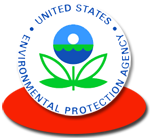Mold Mitigation through HVAC Preventative Maintenance
Because an ounce of prevention is worth a pound of cure, we encourage all HVAC owners to perform preventative maintenance. Below you’ll find our Preventative Maintenance Checklist, which is our proven method to keep your system in the pink and your home mold free and in constant comfort.
Actions To Do Yourself
- Inspect, clean, or change air filters once a month in your central air conditioner, furnace, and/or heat pump. Your contractor can show you how to do this. A dirty filter can increase energy costs and damage your equipment, leading to early failure.
Actions for your Contractor
Show proof of HVAC certification?
The United States Environmental Protection Agency (EPA) requires all persons handling refrigerants be certified. If you are not certified you can't legally buy refrigerants. EPA-Approved Section 608 certification is needed to service building air conditioning and refrigeration systems. With 608 certification, you can purchase any refrigerant in containers greater than 20 pounds.
Conduct a thorough inspection of your system PRIOR to performing any work and alert you to any problems?
- Inspect unit for proper refrigerant level and adjust if necessary
- Inspect base pan for restricted drain openings
- Inspect coil and cabinet
- Inspect fan motor and fan blades for wear and damage
- Inspect control box, associated controls/accessories, wiring and connections.
- Inspect compressor and associated tubing for damage
Is the HVAC system fully operational prior to cleaning?
- Monitor system starting characteristics and capabilities
- Listen for abnormal noise
- Search for source of unusual odors
- Monitor air conditioning and heat pump systems for correct refrigerant charge
- Measure outdoor dry bulb temperature
- Measure indoor dry and wet bulb temperature
- Measure high and low side system pressures
Clean Supply Ductwork
Clean Return Air Ductwork
For Metal Ductwork:
Q: Are interior ductwork surfaces free of visible debris? (Select several sites at random in both the return and supply sides of the system.)
For Fiberglass, or Fiber-lined, Ductwork or Ductboard:
Q: Is all fiberglass or lining material in good condition (i.e., free of tears and abrasions; well adhered to the interior of the duct)?
Remove, Clean and Reset:
- Supply Registers
- Return Air Grilles
Q: Are the registers, grilles, and diffusers visibly clean?
Q: Are all the registers, grilles, and diffusers properly reset?
Access and Clean:
- Supply Air Plenum
- Return Air Plenum
Q: Is the supply plenum (directly downstream of the air handling unit) free of moisture stains and contaminants?
Q: Is the return air plenum free of visible dust and debris?
Install Access Panels as Needed
Q: Are access panels properly sealed according to the NADCA ACR Standard?
Clean Airstream Side of Heat Exchanger
Clean Secondary Heat Exchanger
Q: Was proper access made to the heat exchanger?
Remove, Clean and Reinstall
- Blower Motor, Housing & Assembly
Q: Are the blower blades clean and free of oil and debris?
Q: Is the blower compartment free of visible dust and debris?
Clean Evaporator Coil, Drain and Pan *
Q: Which cleaning method was used?
Type 1: Contact vacuum, brush, or air wash
Type 2: Use coil cleaning chemicals and water
Q: Are both sides of the cooling coil visibly clean?
Q: If you point a flashlight into the cooling coil, does light shine through? It should if the coil is clean.
Q: Are the coil fins straight and evenly spaced (as opposed to being bent over and smashed together).
Q: Is the coil drain pan clean and draining properly?
Replace air filter
Q: Do filters fit properly and are they the proper efficiency as recommended by the HVAC system manufacturer?
Wash air cleaner
If no to any of the services listed above, why not?
Is the HVAC system operating properly after cleaning?
*Some state regulations specify that only licensed HVAC mechanical contractors may clean cooling coils.


